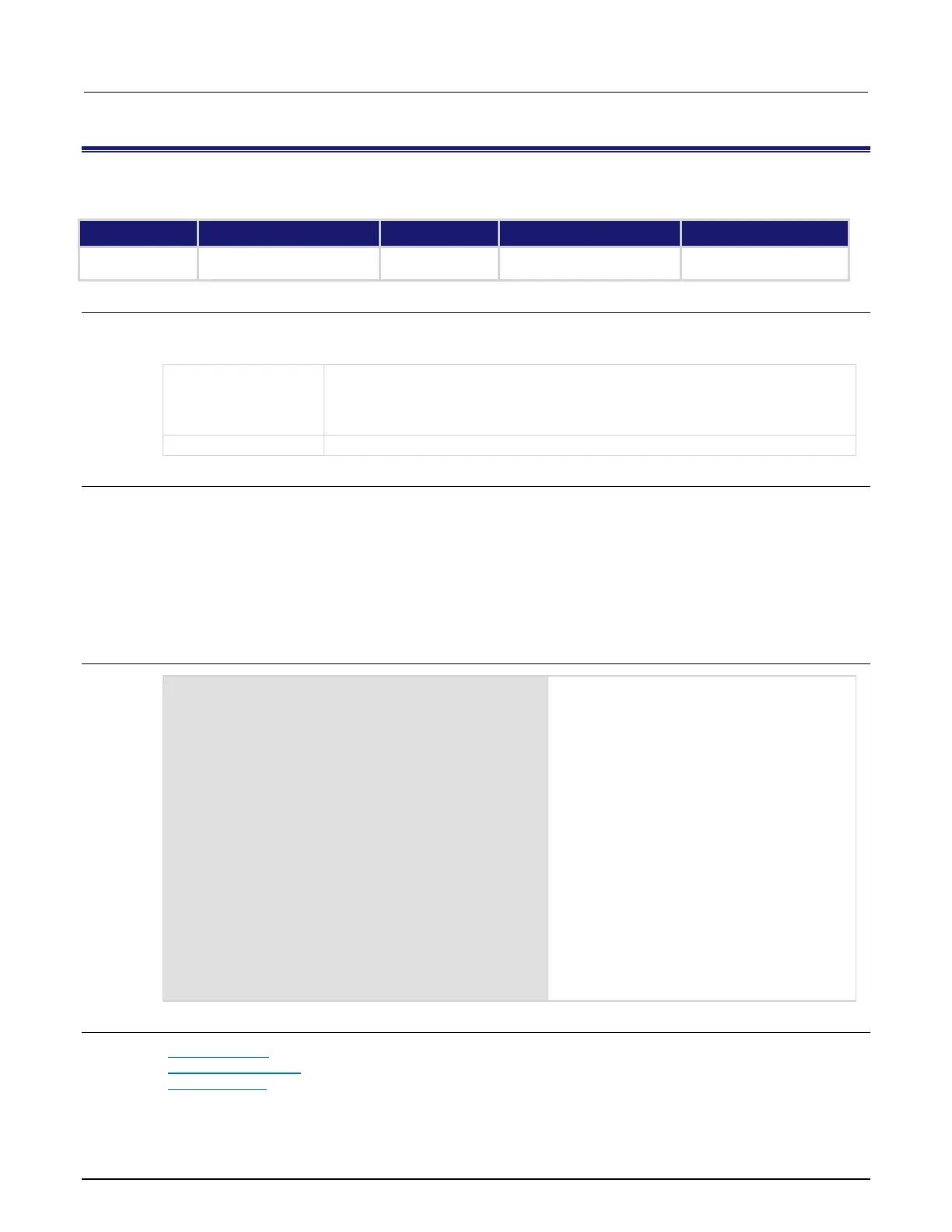Section 11: TSP command reference Series 3700A System Switch/Multimeter Reference Manual
11-24 3700AS-901-01 Rev. D/June 2018
bufferVar.collecttimestamps
This attribute sets whether or not timestamp values are stored with the readings in the buffer.
Instrument reset
Recall setup
Create configuration script
Save setup
Usage
state = bufferVar.collecttimestamps
bufferVar.collecttimestamps = state
Timestamp value collection status; set to one of the following:
▪ 0: Timestamp value collection disabled (off)
▪ 1: Timestamp value collection enabled (on)
Details
Assigning a value to this attribute enables or disables the storage of timestamps. Reading this
attribute returns the state of timestamp collection.
When on, timestamp values are stored with readings in the buffer. This requires four extra bytes of
storage for each reading.
This value, off (0) or on (1), can only be changed when the buffer is empty. Empty the buffer using the
bufferVar.clear() function.
Example
reset()
testData = dmm.makebuffer(1000)
testData.collecttimestamps = 1
dmm.nplc = 0.5
dmm.range = 0
dmm.configure.set("Dcv_100mV")
dmm.setconfig("slot2", "Dcv_100mV")
scan.create("2035:2040")
scan.execute(testData)
print(testData.timestamps[1])
printbuffer(1, 6, testData.timestamps)
This example creates a reading buffer named
testData, configures the buffer to collect
timestamp data, sets and saves the DMM
configuration, creates a scan list, and then runs
the scan.
The print() command then outputs the first
measurement timestamp.
Output:
07/11/2011 09:14:48.509762161
The printbuffer() command then outputs
the timestamps for measurements 1 to 6 in the
reading buffer.
Output:
07/11/2011 09:14:48.509762161,
07/11/2011 09:14:48.528708001,
07/11/2011 09:14:48.547659196,
07/11/2011 09:14:48.566612446,
07/11/2011 09:14:48.585565606,
07/11/2011 09:14:48.681325966
Also see
bufferVar.clear() (on page 11-21)
bufferVar.timestamps (on page 11-36)
Reading buffers (on page 6-7, on page 6-1)

